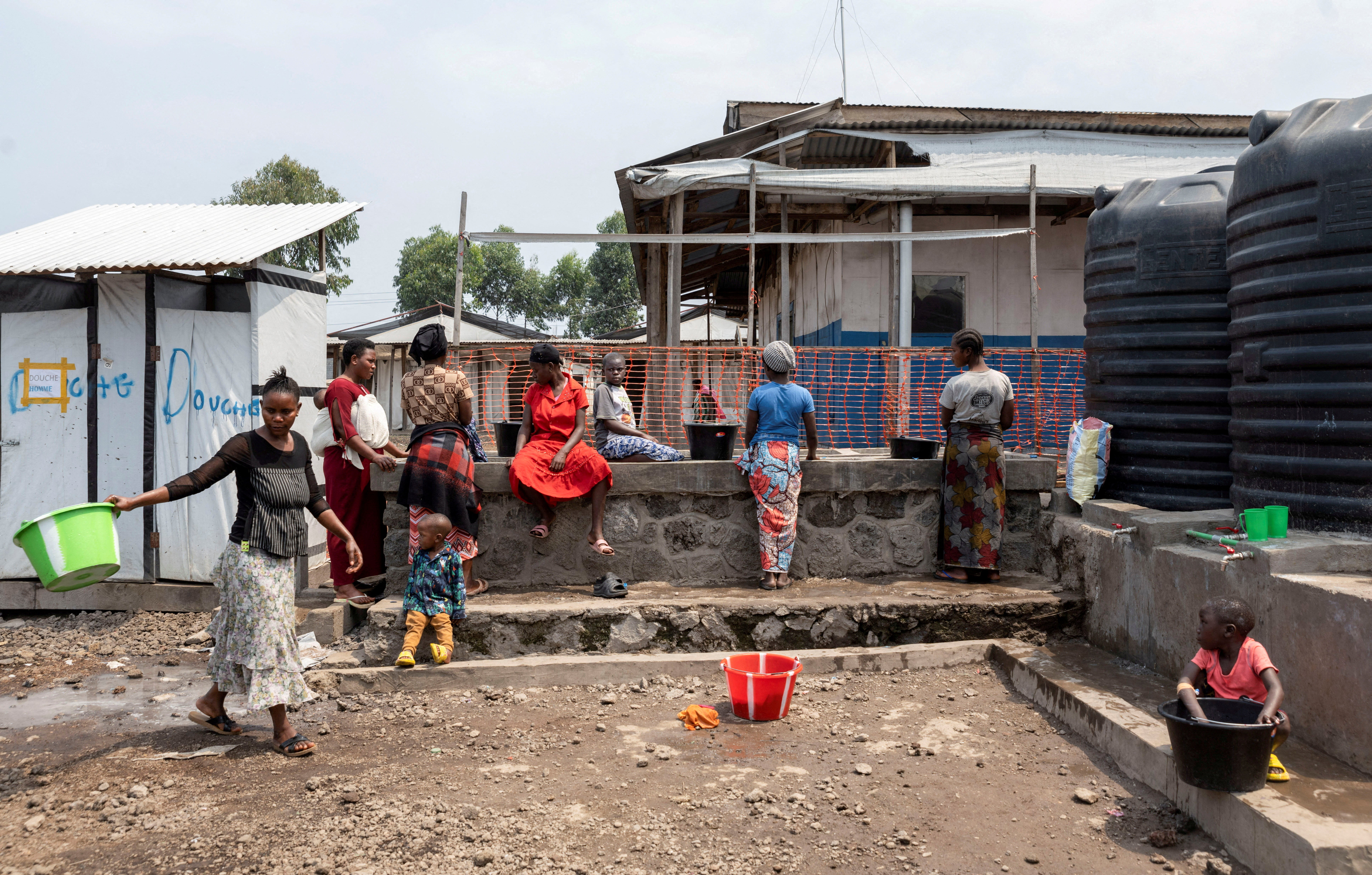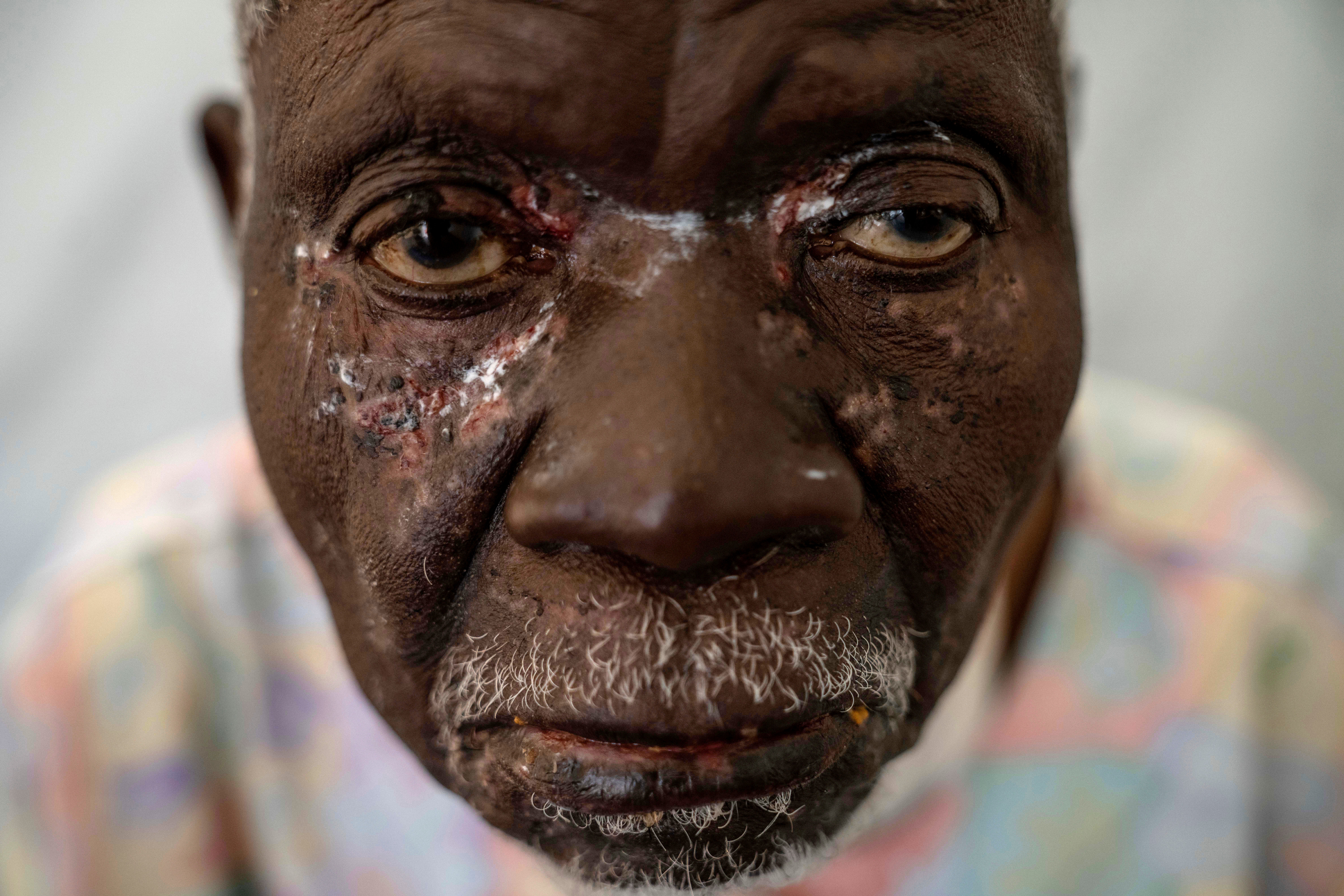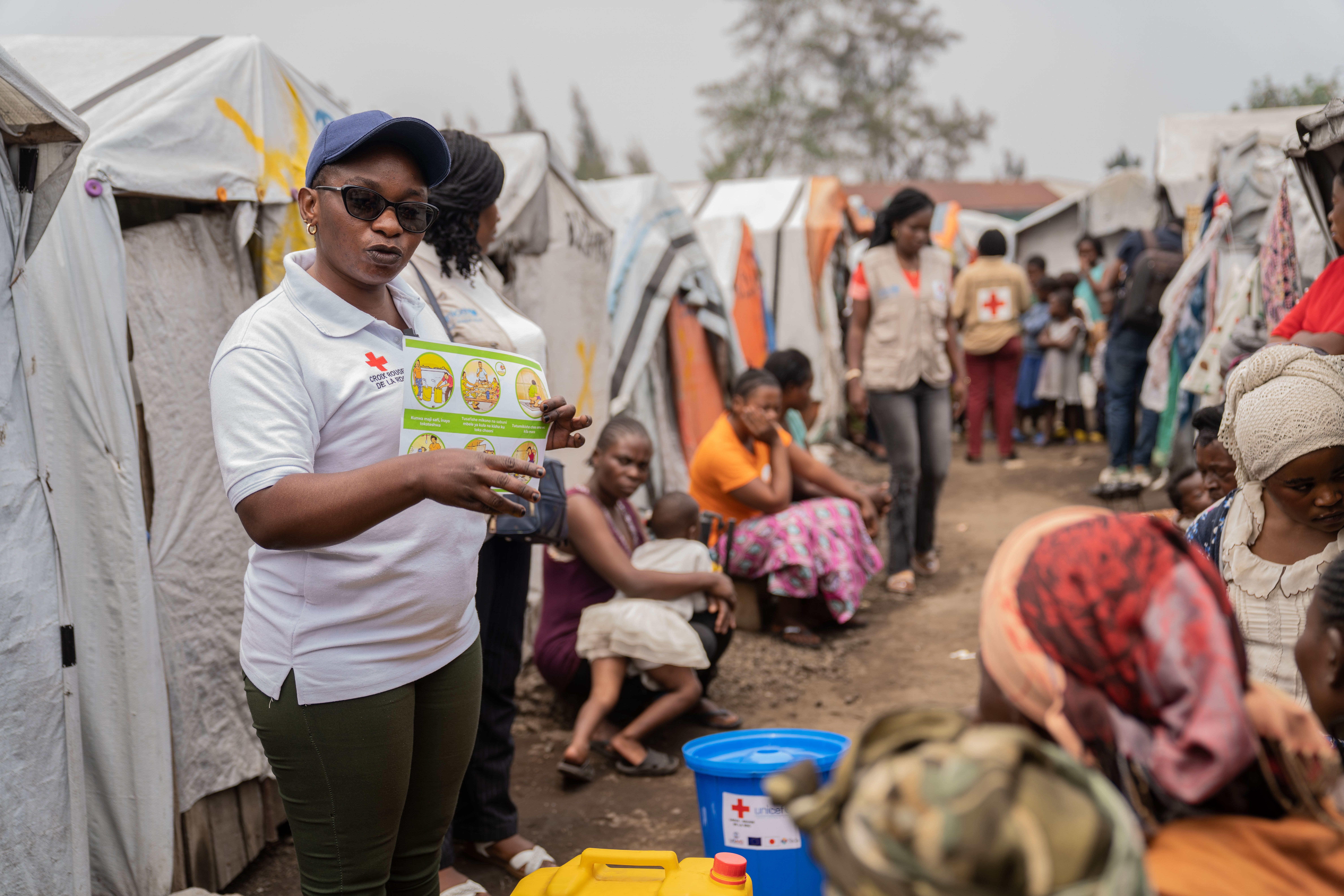Mpox virus latest: WHO calls for $135 million fund to stop outbreaks as new strain mutating rapidly
Scientists “don’t understand” the latest outbreak of the Clade Ib Mpox variant
The World Health Organisation (WHO) has called for $135 million funding to combat the Mpox strain outbreak, which scientists say is mutating “more rapidly” than expected.
On August 14, the organisation declared an Mpox-related global health emergency for the second time in two years.
Speaking to WHO member states, Director-General Tedros Adhanom Ghebreyesus said the latest outbreak “can be controlled and can be stopped”.
$135 million of funding will be needed over the next six months to halt the outbreak, an amount which will “likely increase” over time, Mr Ghebreyesus added.
Scientists have expressed concern at the rate at which the current Mpox strain, Clade Ib, is mutating.
Nigerian scientist Dr. Dimie Ogoina said they “don’t understand the outbreak very well”, leading to difficulty in addressing the disease’s transmission and severity.
Seattle-based doctor Dr. Miguel Paredes said the virus is mutating “more rapidly than we would expect”.
Democratic Republic of Congo has faced the brunt of the outbreak, which has also spread to Burundi, Central African Republic, Rwanda, and Uganda.
The UK is readying itself after Sweden reported Europe’s first case of the deadly variant. Three days ago, Thailand confirmed Asia’s first suspected case of the variant.
Bavarian Nordic to boost mpox vaccine production to tackle outbreak
Danish biotech firm Bavarian Nordic could ramp up production of its mpox vaccine even before having orders lined up, based on the outcome of talks this week with the World Health Organisation, the company’s CEO told Reuters.
Chief Executive Officer Paul Chaplin said in an interview that the company urgently needs to make the call on whether to manufacture “at risk” - or without signed contracts - because diverting or switching manufacturing capacity from its other vaccines to mpox will take time.
In order to make that decision, Bavarian Nordic “would need to be reasonably convinced that those orders would be coming through”, Chaplin said.
“We’ll have to wait and see how the discussions develop this week and we’ll make a decision later this week what we’re doing.”
He said the discussions were with the WHO, the global vaccine group Gavi, and the Africa Centres for Disease Control and Prevention (CDC), and with individual governments in Africa and elsewhere.
It comes as the company said on Saturday it has informed the Africa CDC that it could manufacture 10 million doses of the vaccine by the end of 2025, and could supply up to 2 million doses this year.
But the 2 million doses by year-end would not be possible unless Bavarian Nordic “changes gears” to start producing more of its mpox vaccine now, instead of its other vaccines, Chaplin said: “Every week we don’t switch over, we lose some of that capacity.”
ICYMI: Thailand confirms Asia’s first known case of dangerous new mpox variant
Thailand confirms Asia’s first known case of dangerous new mpox variant
Thailand has confirmed Asia’s first known case of a new, more dangerous strain of mpox in a European traveller.
The patient, a 66-year-old man who arrived from an unnamed African country on 14 August, has tested positive for the Clade 1b variant, which is deadlier and more transmissible.
“Thailand’s Department of Disease Control wishes to confirm the lab test result which shows mpox Clade 1b in a European patient,” the department said in a statement.
The man had minimal contact with other people after he arrived in Thailand and sought medical attention the following day after he experienced symptoms similar to mpox, authorities said.
Read the full story below:

Thailand confirms Asia’s first known case of dangerous new mpox variant
European man, 66, arrived in Thailand from an unnamed African country on 14 August
How is mpox spread?
The outbreak comes as a new strain is identified, named clade 1, said to be spreading mainly through sexual networks.
WHO says it has been identified in Burundi, Kenya, Rwanda and Uganda – all countries that have never reported cases of mpox before.
Although mpox was not generally a sexually transmitted infection in 2022-23, it was suggested by public health officials that the outbreaks were linked to sexual activity - with the majority, but not all, cases amongst men who have sex with men.
Charities welcome government’s £3.1million mpox support to Congo but urge more funding for clean water
The government’s pledge to provide the Democratic Republic of the Congo with a £3.1million mpox package has been welcomed by charities.
But Wateraid has urged ministers to focus their support on funding clean water to tackle the virus.
Katherine Nightingale, global international affairs director at WaterAid, said: “The UK government is right to support efforts to contain both mpox and cholera outbreaks in Democratic Republic of the Congo – but funding must be directed towards ensuring clean water and sanitation are provided across healthcare facilities, households, and schools, as recommended by the World Health Organisation.
“We cannot vaccine our way out of this growing health emergency. Currently 1 in 10 people do not have access to clean water and half of the world’s healthcare facilities do not have basic hand hygiene services. These conditions are an open invitation for infections to walk right in and disrupt lives.
“If the UK really wants to play its part in killing the menace of Mpox and save lives, the government must urgently prioritise investment into clean water and good hygiene – our vote is for water, water for all.”

Germany commits 100,000 vaccines to African countries
Germany will donate vaccines from its military stocks to help contain the Mpox outbreak in Africa in the short term and to provide help to affected countries.
100,000 vaccines have been committed by the German government, as African countries continue to battle the disease.
Democratic Republic of Congo has been hit the worst by the more deadly Clade Ib Mpox strain, which has also spread to Burundi, Central African Republic, Rwanda, and Uganda, Sweden and Thailand.
The World Health Organisation has called for significant financial commitments to help prevent the spread of Mpox around the world, in what they have described as a global health emergency.

WHO calls for $135 million funding for 6-month combat plan
The WHO says the latest outbreak “can be controlled and can be stopped” - but this will require significant funding from its member states.
Director-General Tedros Adhanom Ghebreyesus told WHO members that $135 million will be needed over the next six months.
The money will go towards a half-year plan which is expected to run from September through to February, which aims to improve fair access to vaccines.
The organisation is “significantly scaling up staff” in the worst affected areas.
"To fund this work and to stop the outbreak as quickly as possible, our initial estimates are that the [Strategic Preparedness and Response Plan] requires approximately $135 million over the next six months for the acute phase of the outbreak," said Ghebreyesus.
"That amount will likely increase as we update the plan in light of growing needs," he said.

Mpox outbreak mutating ‘more rapidly than expected’, scientists say
The new strain of Mpox that has spread out of Democratic Republic of Congo is mutating more quickly than expected, scientists say.
Scientists in Africa are “working blindly” to respond to the quickly mutating virus, said Dr. Dimie Ogoina of the Niger Delta University Hospital.
“We don’t understand our outbreak very well, and if we don’t understand our outbreak very well we will have difficulty addressing the problem in terms of transmission dynamics, the severity of the disease, risk factors of the disease,” Dr Ogoina said according to Reuters news agency.
“I worry about the fact that the virus seems to be mutating and producing new strains,” he added.
Seattle-based Dr. Miguel Paredes said the strain is “mutating a little bit more rapidly than we would expect”.
The Mpox strain which caused the previous outbreak in 2022, Clade IIb, took five years to evolve enough for a sustained spread through humans.
Clade Ib, the strain leading the current outbreak, did so in just one year.
DR Congo faces delays to vaccine delivery
The delivery of Mpox vaccines to the Democratic Republic of Congo, which is facing the brunt of the current outbreak, has been delayed.
The central African country is battling a new variant of the deadly virus, which has now spread beyond its borders into neighbouring countries, including Uganda.
Last week, Congo’s health minister had hoped the first doses of the vaccine would arrive this week, after the WHO declared a global health emergency on August 14.
But Cris Kacita, the head of Congo’s response team, says there are “still several processes to follow”.
Congo’s pharmaceutical regulatory agency needs to be given guidance by Danish drugmaker Bavaria Nordic before vaccines can arrive in the country.
“So we're waiting,” Kacita said.
Mpox Outbreak: Is the deadly virus in the UK and how worried should we be?
Concerns about the mpox virus have intensified with the emergence of a new potentially more dangerous variant.
The UK has reported 186 mpox cases over the past two years, with no fatalities. However, an outbreak in Africa, particularly in the Democratic Republic of Congo, has led to approximately 450 deaths linked to the new Clade 1b strain.
The first two cases of the virus outside Africa were identified in Sweden and Thailand, both involving travelers from the affected regions.
While thos variant has not yet been detected in the UK, there are currently no official travel restrictions from countries experiencing outbreaks.
Authorities in the UK are monitoring the situation but have reassured the public that robust control measures are in place. The focus remains on maiintaining vigilance and controliling any potential spread, rather than imposing travel restrictions, health authorities said.

Watch| Debunked: Anti-Vaxxers claim mpox outbreak is a ‘scandemic’

Debunked: Anti-Vaxxers claim Mpox outbreak is a ‘scandemic’
Conspiracy theorists are branding the recent mpox outbreak a “scamdemic” in a recent social media wave of misinformation. A public health emergency was declared by the World Health Organisation over the outbreak in several African nations, with at least three cases now reported outside of the continent. Mpox can spread through skin-to-skin contact, respiratory droplets, and contact with contaminated materials. Symptoms include a high temperature, headaches and muscle aches. In Africa, the latest strain, branded clade 1b, has a higher mortality rate which ranges from 4-10% compared to the usual rate of 0-11%. Bill Gates, along with other Big Pharma companies are being falsely accused of falsifying the outbreak to push vaccines for profit, with some even claiming that Covid vaccines caused mpox symptoms. Professor Michael Marks from the London School of Hygiene & Tropical Medicine told The Independent: “The vaccination is the most likely component of control. It’s known to be a very safe vaccine, very well tolerated.”
Subscribe to Independent Premium to bookmark this article
Want to bookmark your favourite articles and stories to read or reference later? Start your Independent Premium subscription today.






Join our commenting forum
Join thought-provoking conversations, follow other Independent readers and see their replies
Comments